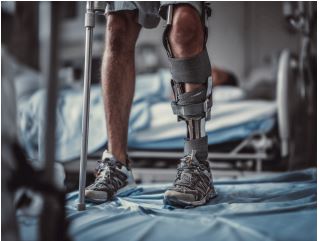Phantom Limb Pain
Pain That Feels Like It’s Coming from a Limb That Is No Longer There
Overview
Phantom limb pain is a type of nerve pain that occurs after an arm, leg, hand, or foot has been amputated. Even though the limb is no longer physically present, the brain and nervous system may still perceive pain or discomfort as if it were. This pain can range from mild to severe and may feel burning, stabbing, tingling, or cramping. It is different from residual limb pain, which is pain at the actual site of amputation.

Common Symptoms
- Burning, stabbing, or shooting pain in the area where the limb used to be
- Sensations of pressure, cramping, or twisting
- Pain that comes and goes or is constant
- Worsening pain with stress, weather changes, or physical activity
- Co-occurring residual limb pain or skin sensitivity
Causes & Risk Factors
- Amputation of a limb due to trauma, vascular disease, cancer, or infection
- Nerve damage or inflammation at the amputation site
- Sensitization of the brain and spinal cord after limb loss
- Poorly fitting prosthetics or scar tissue may contribute
How We Can Help
At Restore Spine and Pain, we offer a range of advanced treatments to help manage phantom limb pain. Our approach targets both the overactive nerves and the brain’s pain signaling systems to reduce discomfort and improve function.
Treatment Options Offered
- Medications to calm nerve signals and reduce pain intensity
- Mirror therapy or desensitization exercises in collaboration with therapy specialists
- Peripheral nerve blocks for neuroma related pain
- Spinal cord stimulation (SCS) for long-term relief in appropriate candidates
- Peripheral nerve stimulation (PNS) when localized nerve targeting is beneficial
- Coordination with prosthetics and physical therapy teams
Schedule a Consultation
If you're living with persistent pain after an amputation, you are not alone—and effective treatment options are available. At Restore Spine and Pain, we are here to help manage phantom limb pain with the goal of improving comfort, mobility, and quality of life. Contact us today to schedule your consultation.

